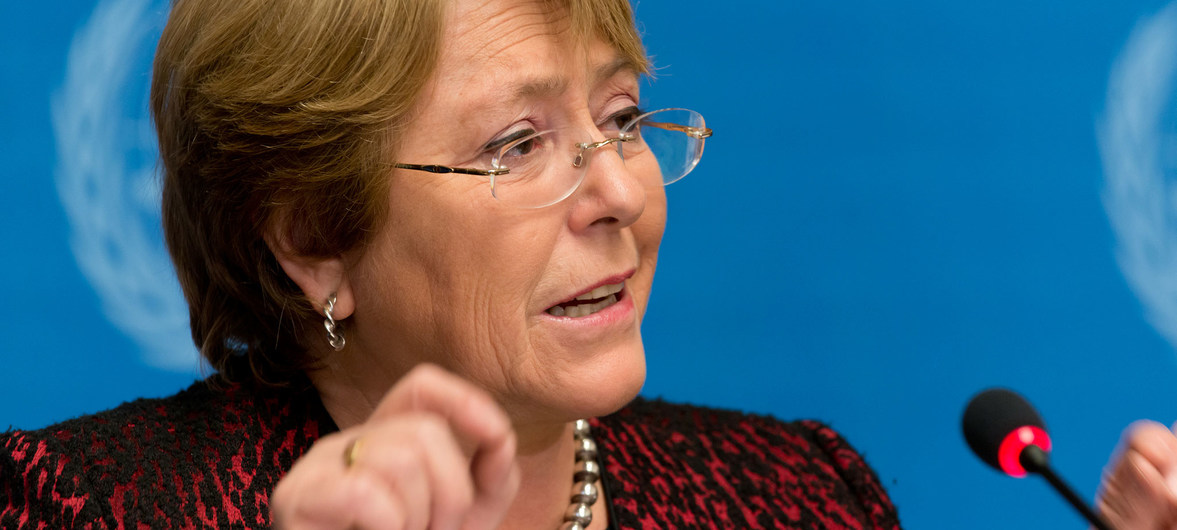
The Sri Lankan government’s inability to “deal comprehensively with impunity and to reform institutions may cause the recurrence of human rights violations” the Office of the United Nations High Commissioner for Human Rights (OHCHR) said in its report on Sri Lanka's efforts towards implementing Resolution 30/1, which called for accountability and transitional justice through a hybrid mechanism.
The report raises concerns over the “signs indicating a possible reversal of past commitments by the Government which would setback the promotion of reconciliation, accountability and human rights, reduce civic space and erode important institutional safeguards.”
Following the election of President Gotabaya Rajapaksa, the Sri Lankan government “has signalled its intention to review the commitments made under Resolution 30/1.”
The OHCHR invited the Government of Sri Lanka to provide information regarding the progress of Resolution 30/1, covering the period from January 2019 to January 2020. However on February 5 2020, the Permanent Mission of Sri Lanka informed the Office that the government did not wish to do so.
Read the full report here.
Office of Missing Persons and Office of Reparations
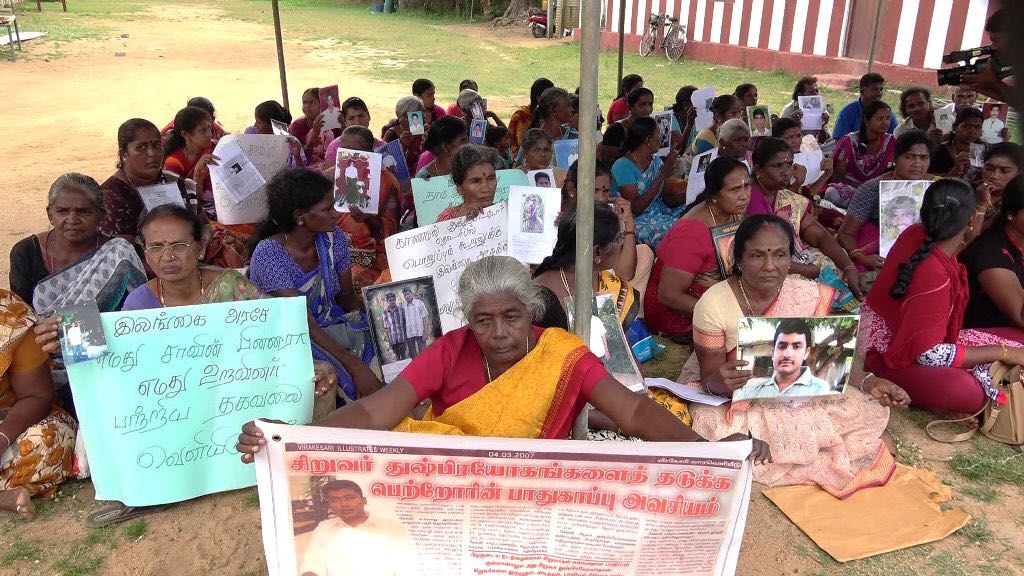
Families of the disappeared at their 1000th day protest in November 2019
The report highlighted the delay in implementing both the Office of Missing Persons (OMP) and Office of Reparations (OR) and noted that both institutions “have undertaken important initiatives.” However, “further steps need to be taken for the two institutions to be effective in fully responding to the expectations of victims.”
The Government has indicated it may take a different approach to the issue of missing persons who may have been the victims of enforced disappearances during and after the conflict. This has created considerable distress and anxiety among victims and their families. In a statement on 26 January, the President’s office clarified that “after the necessary investigations, steps would be taken to issue a death certificate and the necessary support for the families to rebuild their lives.
The High Commissioner appeals to the Government to take a more considered and comprehensive approach that ensures the investigation of these cases and provides justice and redress to victims and their families. This cannot be achieved through an expedited administrative and compensation process alone. As highlighted also by the Working Group on Enforced and Involuntary Disappearance, any comprehensive policy should address all the enforced disappearances that took place in the country, regardless of the time of the disappearance and without any type of discrimination.
Sri Lanka has now also ratified the Convention for the Protection of All Persons from Enforced Disappearances. The High Commissioner urges the Government to safeguard and build upon the valuable work of the Office of Missing Persons, the Office of Reparations and the judiciary. As the Government seeks to bring closure to the issue of missing persons, it is critical that it provides adequate political support and resources to the Office on Missing Persons and the Office for Reparations to deliver concrete benefits for victims and their families, particularly in clarifying the fate of the missing and providing reparations.
Accountability for emblematic cases and past violations
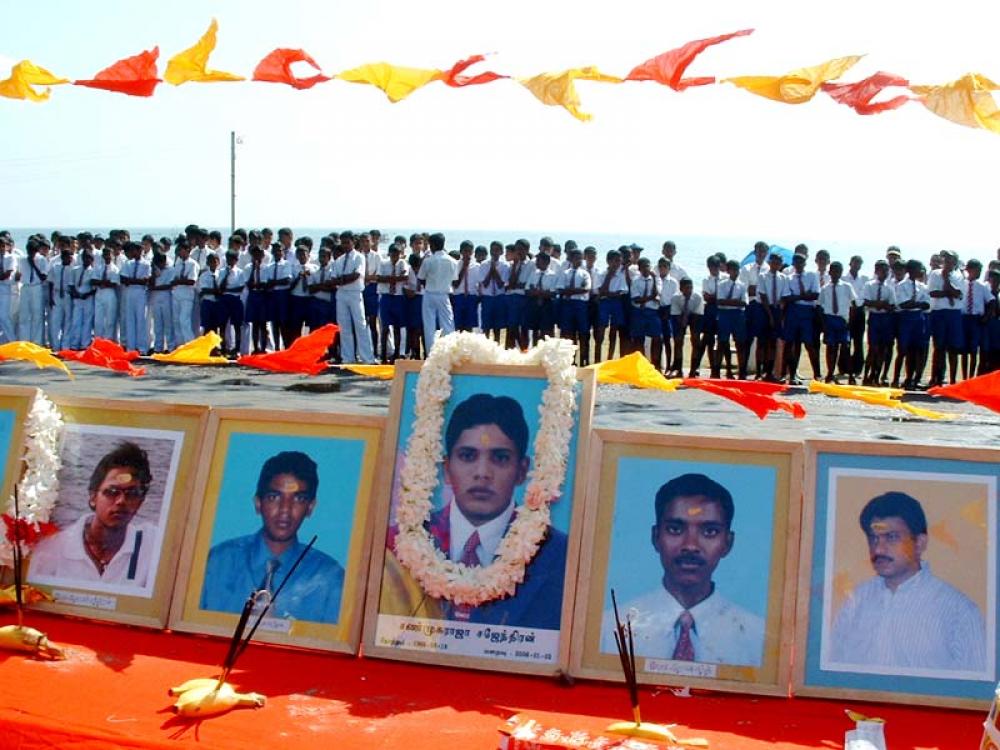
'Trinco 5' case is one of four ‘emblematic cases’ of the government's failure to ensure accountability
The report stresses that there has been “minimal progress in the investigation and prosecution before Sri Lanka’s courts of the long-term emblematic cases highlighted in previous reports of the High Commissioner to the Human Rights Council.” The OCHCR highlighted that “the absence of progress on these cases highlights the systemic impediments to accountability in the criminal justice system.”
Meanwhile, on 9 January 2020 the Government appointed a new Presidential Commission to investigate alleged political victimization of public officials by the previous Government. On 22 January 2020, the Commission issued directives to the Attorney-General to suspend the prosecution of naval officers over the abduction for ransom of 11 youths in Colombo in 2008 and 2009. At time of writing, the Attorney-General had not complied with this order, asserting the independence of his office. Several officers responsible for the investigation of other high profile cases have been transferred or deprived of their security details.
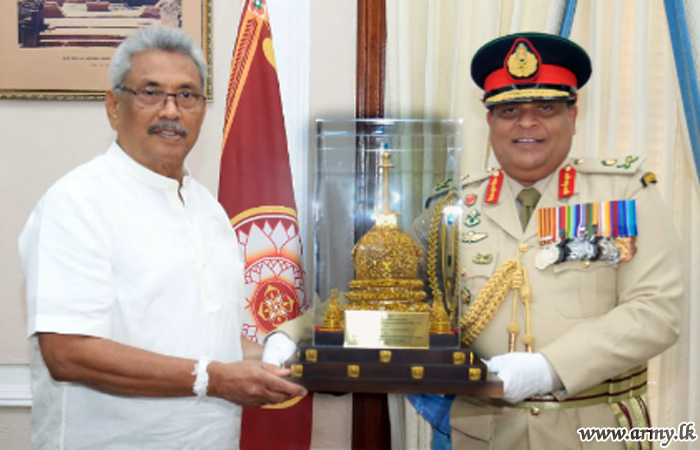
Shavendra Silva, was appointed the Army's Chief of Staff last year, despite heading an army unit that committed grave violations of international law
The report expressed that Sri Lanka has failed to ensure accountability for past violations:
Very little action has been taken to remove individuals responsible for past violations, to dismantle structures and practices that have facilitated torture, enforced disappearances and extrajudicial killings, and to prevent their recurrence. The High Commissioner is deeply concerned about the appointment of several military officers to senior command positions, both before and after the presidential elections, despite the serious allegations that troops under their command committed gross violations of international human rights and humanitarian law during the war.
Prevention of Terrorism Act (PTA)
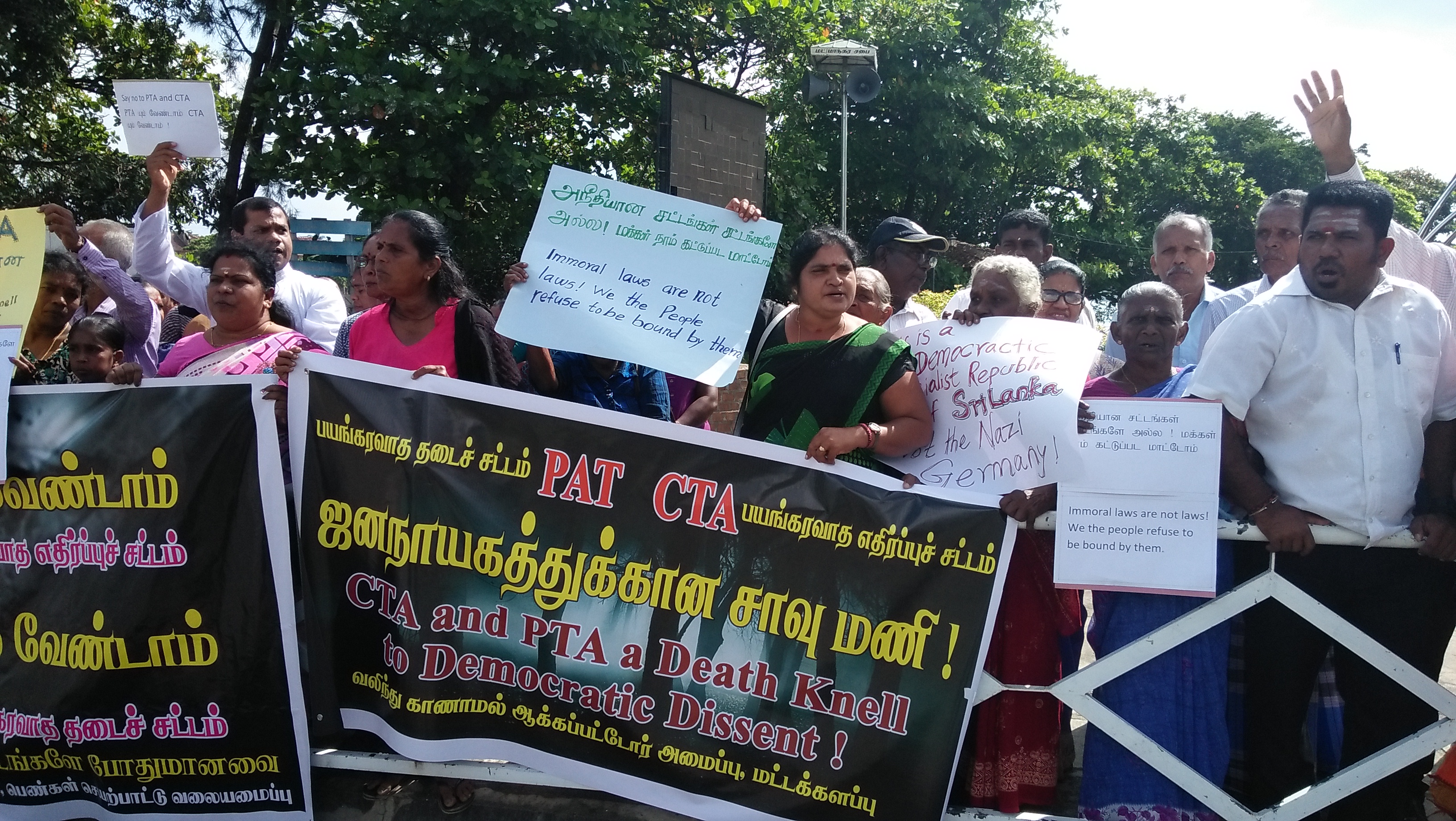
Batticaloa residents condemn PTA and draft CTA. February 22, 2019
Resolution 30/1 called on Sri Lanka to repeal the PTA, which is legislation that has been linked to cases of enforced disappearances, sexual violence and torture.
In the wake of the attacks of April 2019, the Government did not finalize or proceed with the Counter-Terrorism Bill which had been drafted to replace the Prevention of Terrorism Act (PTA). On 4 January 2020, it announced that it would be withdrawn. PTA has continued to be used and was a basis to arrest individuals believed to be linked to the organizations responsible for the attacks. As of January 2020, more than 200 individuals were in detention and under judicial custody under PTA, including in relation to the attacks of April 2019.
Militarisation
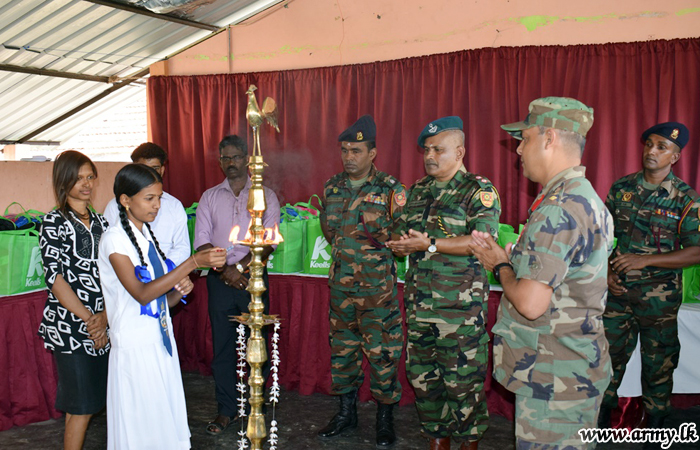
Senior military commanders at Tamil school events
Tens of thousands of Sri Lankan soldiers remain deployed across the North-East. The military remains extensively involved in civilian life in the region, making regular appearances at schools, places of worship and other community events. Tamil communities also allege that this projects such as those on irrigation, forestry and archaeological are attempts to colonise the land and perpetuate military control over economic activity. The OHCHR also noted that;
There has been a disturbing trend towards the militarization of civilian government functions. Control of several key civilian departments has been recently put under the oversight of the ministry of defence, including the police, the immigration department, telecommunications registration, the national media centre and the secretariat for non-governmental organizations.
Human Rights Defenders
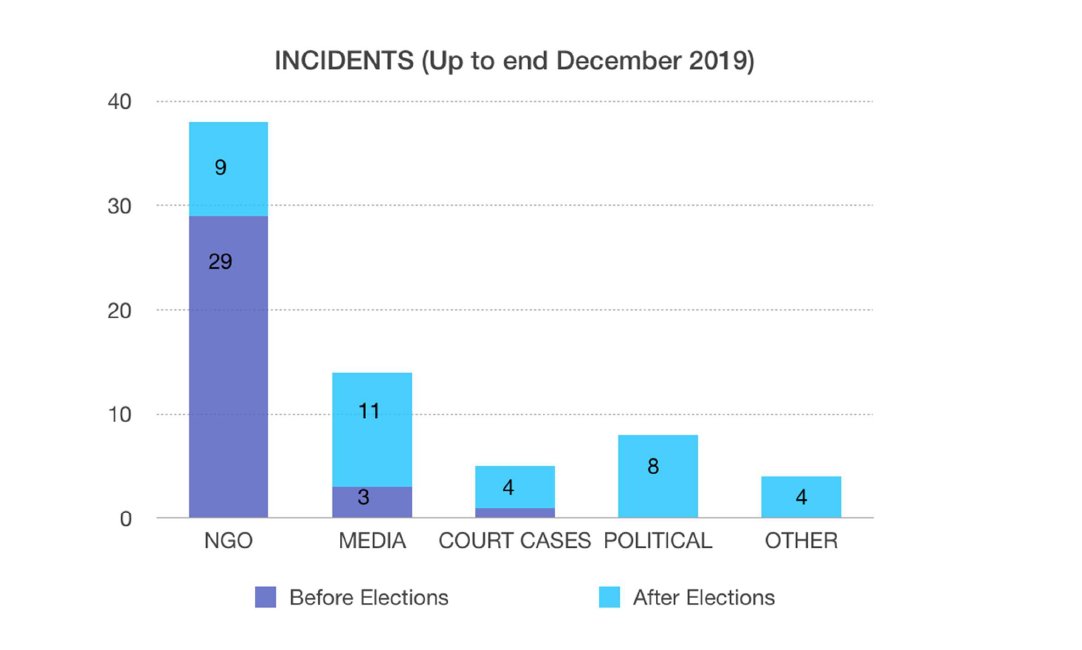
Graph from 'Sri Lanka: And The Crackdown Begins' report by International Truth and Justice Project (ITJP) and Journalists for Democracy in Sri Lanka (JDS) highlighting recent incidents of intimidation and threats
The report expressed concern over the rise in harassment and surveillance of human rights defenders and victims of human rights violations in 2019.
In particular, starting from October 2019, more than a dozen organizations working on documentation or litigation around accountability and disappearances issues have reported being visited by agents claiming to belong to security agencies and requesting administrative details of the organizations, list of staff, funding sources and external travel. Some relatives of victims of disappearances who took part in organized protests in 2019 were asked to report to police stations for further questioning. Such visits, which began before the presidential election and have since continued, have been documented in different parts of the country, generating considerable fear and anxiety. Several journalists were summoned by the Criminal Investigation Department, arrested and detained or had their offices searched; others have received threats. In some cases, Sri Lankans who travelled to Geneva to attend sessions of the Human Rights Council were questioned about the motives of their trips, either at the airport or during visits by the police at their homes upon their return.
Recommendations
The OHCHR urges Sri Lanka to fully implement Resolution 30/1 as “the commitments under it remain essential to achieve the peaceful society and sustainable development aspired to by people from all communities in Sri Lanka.”
With regards to the OMP and OR, the OHCHR stressed that both institutions are independent and that “they be provided with adequate resources to effectively fulfil their mandate.”
Noting the widening up of space for civil society and media post 2015, the OHCHR urges that this space is protected and that the Sri Lankan authorities “immediately end the intimidating visits by State agents and all forms of surveillance and harassment of and reprisals against human rights defenders, social actors and victims of human rights violations and their families.”
The OHCHR is concerned by hate speech and aggressive campaigns by some militant nationalist and religious groups against ethnic, religious and other minorities, particularly Muslims. It urges the Sri Lankan Government to “take measures to actively prevent such extremism, to investigate and hold those involved in communal violence accountable.”
The High Commissioner is also concerned that the failure to ensure accountability for past violations and to undertake comprehensive security sector reform to dismantle the structures that facilitated them to prevent further cycles of violence. The OHCHR has called on Sri Lanka to “promptly investigate and prosecute all allegations of torture and other gross human rights violations.”
The OHCHR encourages the Government to urgently proceed with the review and repeal of the Prevention of Terrorism Act and to engage with the Special Rapporteur on the promotion and protection of human rights and fundamental freedoms while countering terrorism and to finalise a new legislation that complies with international human rights standards.
The OHCHR urges member states at the Human Rights Council to continue to closely monitor developments in Sri Lanka and to maintain engagement with the Government to promote the full implementation of resolution 30/1.
Read the full report here.
